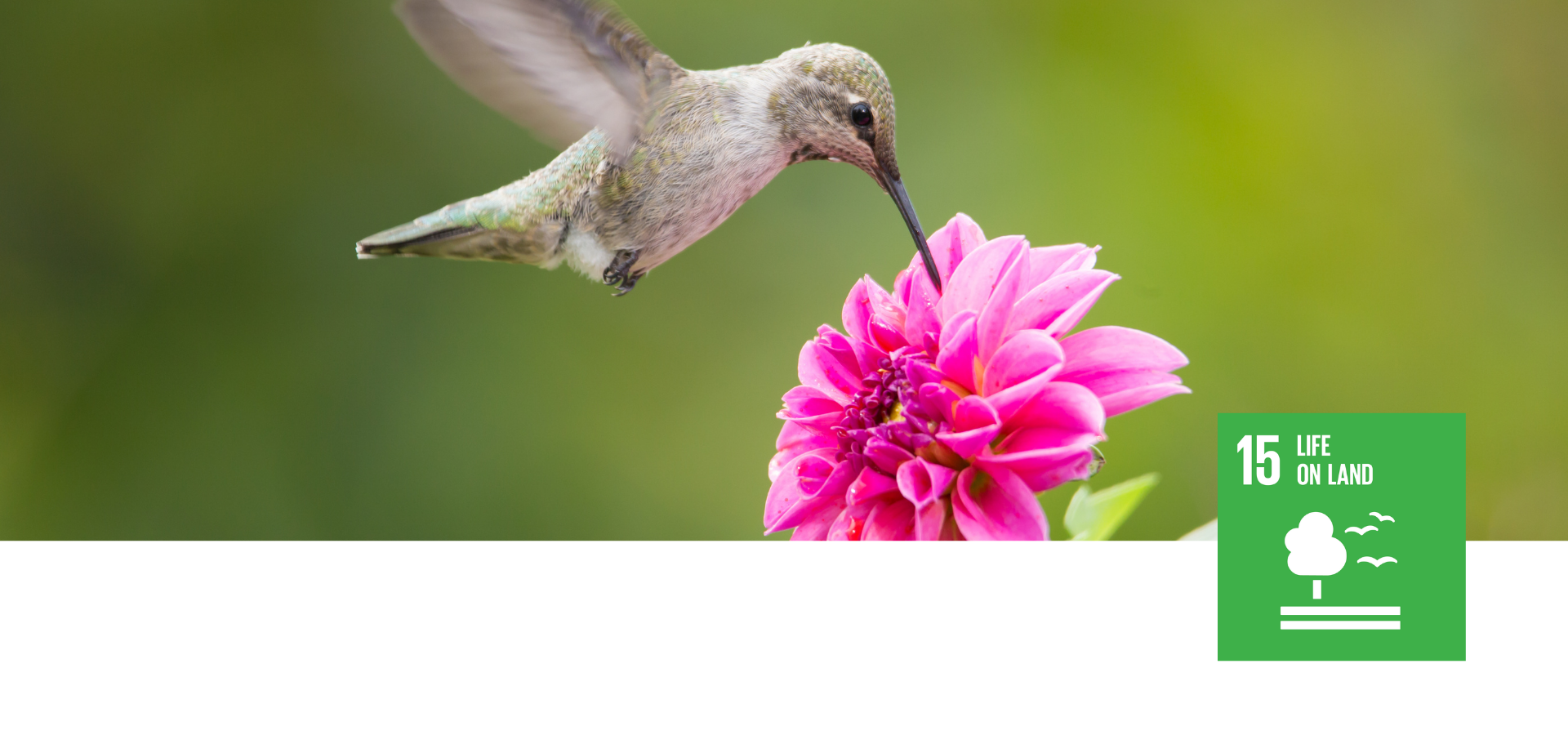
SDG 15: Life on land
To address the loss of biodiversity due to climate change and human activity, HKUST recognizes the importance of responsible land management practices and preserving the health of terrestrial ecosystems. We promote the conservation and sustainable use of land resources through our policies while also raising awareness through community outreach efforts and encouraging research that reverses biodiversity loss.
Curriculum
68 related courses were offered in the 2021-22 academic year.
Research
From 2018 to 2022, HKUST published 52 research papers related to SDG 15.
Policy
Our Sustainable Catering Policy extends the university’s responsible land management practice to our catering partners, requiring them to ,develop and share a sustainable food practices plan that reduces their environment impacts. Our caters are also encouraged to use Environmentally
Preferable Cleaning Chemicals and comply with recognized green labelling organizations to minimize the impact of chemicals on plant and animal habitats
Community Outreach
The HKUST Biodiversity Map project aims to strengthen knowledge and awareness of local biodiversity and conservation among students and the HKUST community. It promotes active learning and engagement through field trips, designing biodiversity routes, and creating educational materials. The project provides a flexible learning atmosphere outside the classroom, fostering a sense of belonging and appreciation for nature among HKUST members.
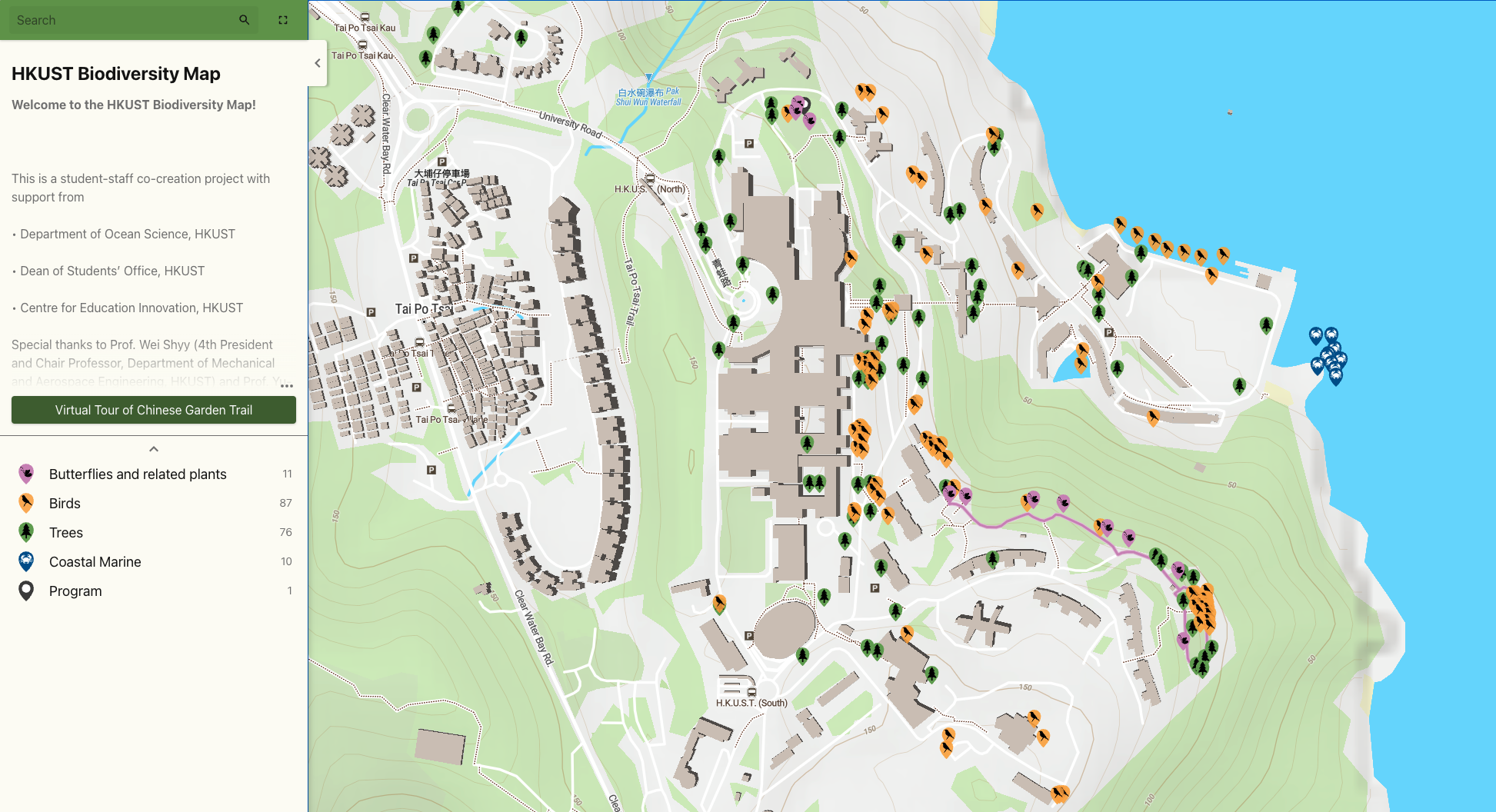
HKUST Biodiversity Map and virtual tours present a systematic collection of biodiversity information and photo albums to strengthen knowledge and awareness of local biodiversity and conservation.
HKUST also regularly organizes events to promote sustainable practices. The Sustainable Smart Campus Bird-watching Tour allows participants to learn about campus bird species, fostering appreciation for nature and supporting the sustainable management of terrestrial ecosystems.
Recognizing the vital role birds play, You Will See a Hoopoe, uses Green AI cameras deployed at certain locations on campus can capture bird images and analyze the data, before sharing it with the public. Along with bird watching campus tours, this Living Lab project allows staff and students to get to know the richness of the biodiversity of the HKUST campus, and encourages the public to send in photos of birds that they take on campus and use them to train the AI model for bird identification.
This Smart Sustainable Campus as a Living Lab project used AI cameras to detect bird species on campus
The EcoFish Series showcased sustainable aquaculture practices in local fishponds, reducing pressure on wild fish populations and conserving marine and coastal ecosystems. Farming with Grow Something HK event also introduced organic gardening methods and offers a hands-on experience with transplanting lettuce seedlings, promoting sustainable agriculture and environmental awareness.
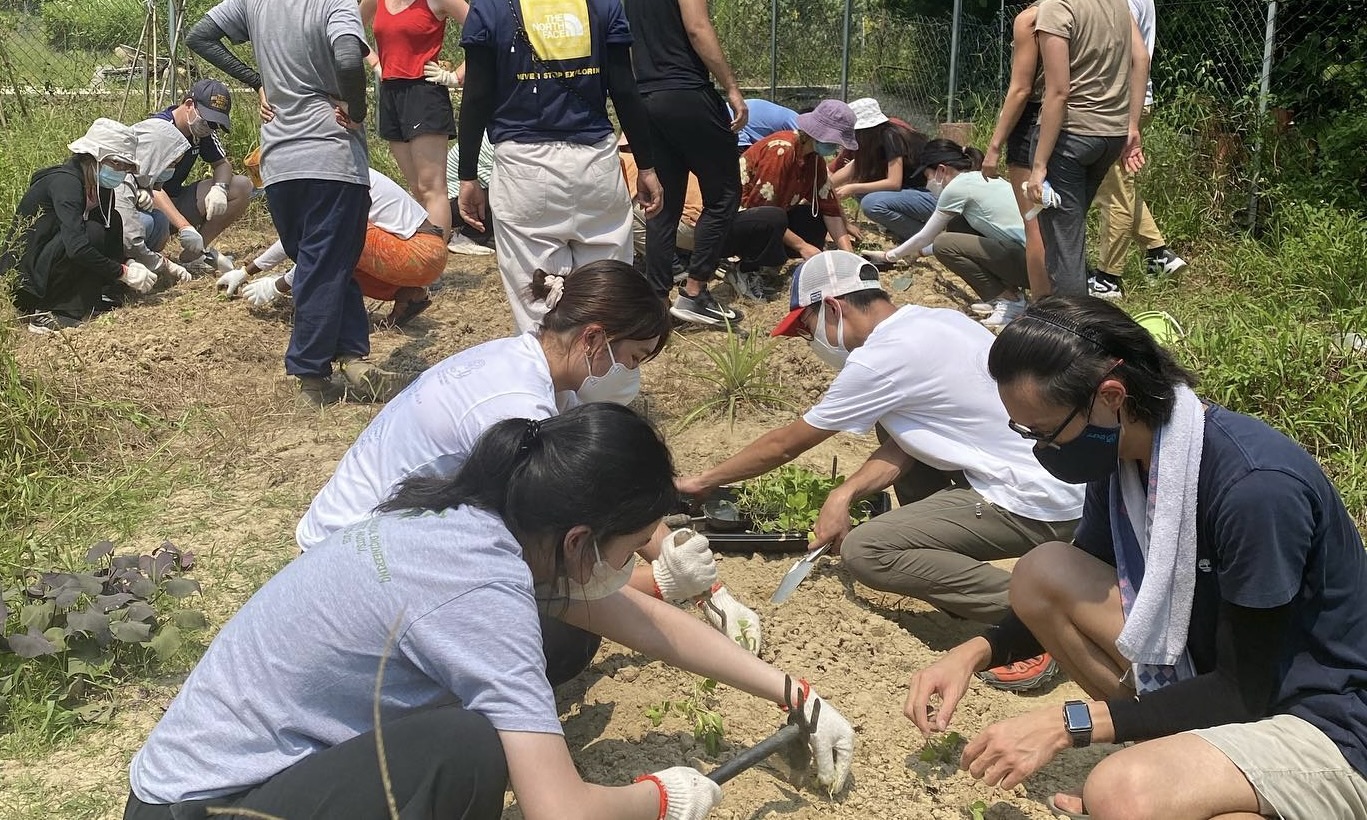
September 2022: Students are introduced to organic gardening methods and learn to transplant lettuces seedling
HKUST Connect organized a range of volunteer events that not only provided opportunities for students to actively engage in community service but also promoted the conservation and restoration of terrestrial ecosystems, the protection of endangered species, and the responsible management of natural resources. With events like Exploration in Butterfly Reserve, Cat Shelter “Purr-fecting” Action, Hike without Trace, Beach Cleanup @ HKUST and Rock Cleaning Angels, volunteers gained awareness of environmental issues and contributed to the conservation of terrestrial and marine ecosystems, the protection of endangered species, and the promotion of responsible nature stewardship.
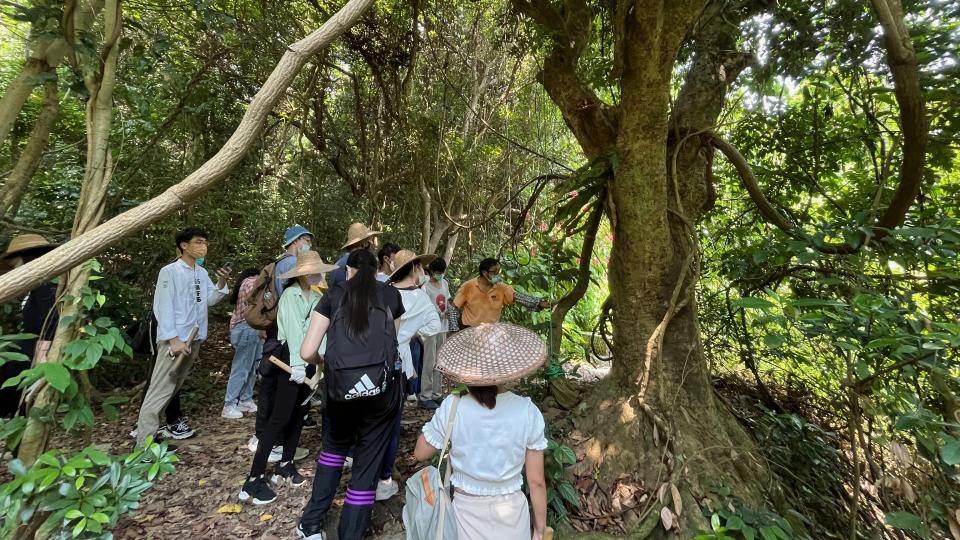
September 2022: Exploration in Butterfly Reserve
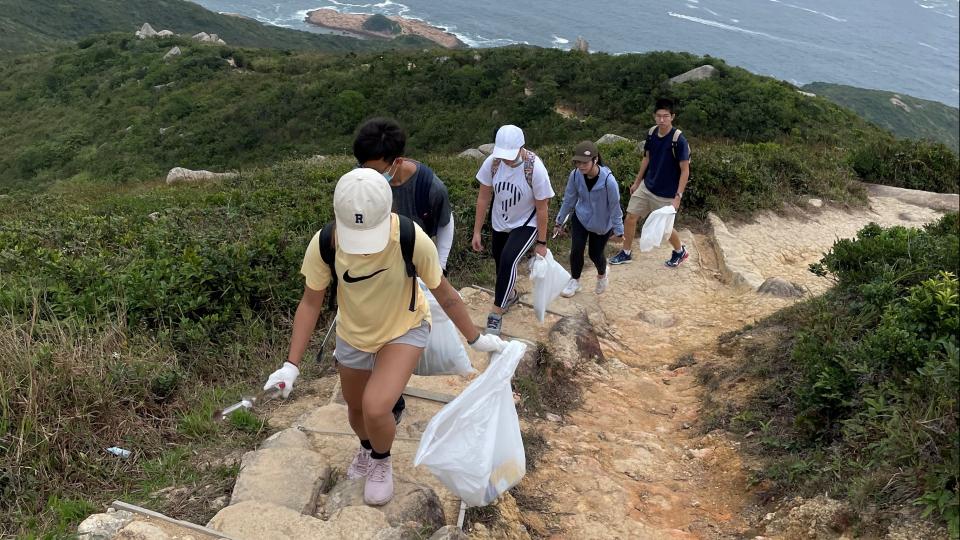
November 2022: Hike Without Trace
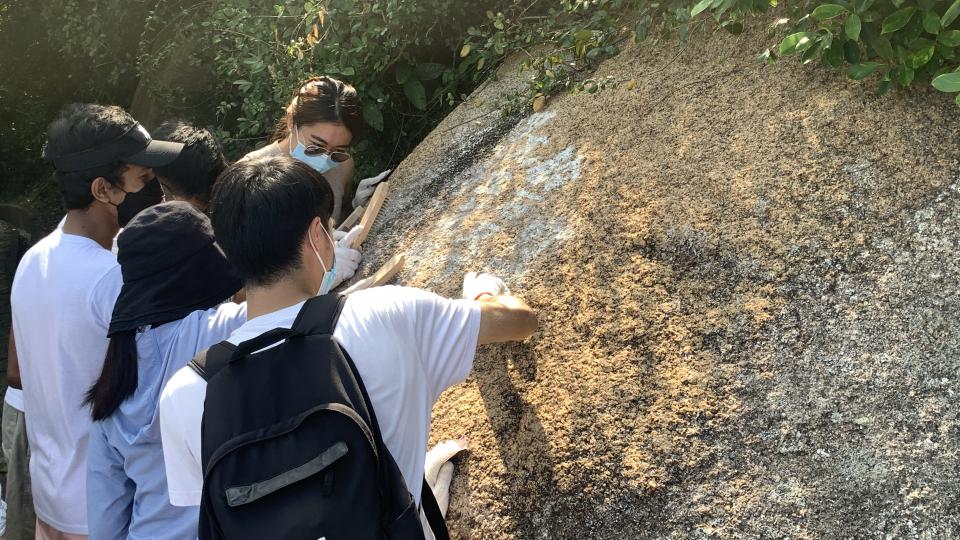
November 2022: Rock Cleaning Angels
Sustainable Smart Campus as a Living Lab
The Internet of Tree Things project incorporates sensors, an IoT network, and multiple servers, forming a comprehensive monitoring system. Leveraging the LoRaWAN IoT network, the collected data is transmitted and analyzed in real-time, ensuring continuous monitoring even in challenging weather conditions, enhancing our understanding of tree ecosystems, helping us identify potential threats to tree health, and facilitate timely interventions to preserve biodiversity and maintain the vitality of land ecosystems.